Skin Nutrition
Bundle & save up to 20%*.
At Xtendlife, we ensure that only the best goes into our quality supplements. No expense is spared in the sourcing of raw ingredients, and each is carefully selected for purity, potency and bioavailability. We then optimize these ingredients by blending them with complementary ingredients to ensure optimal synergy within the formulations.
Find out the important roles each ingredient plays in Xtendlife formulations. Use this section to learn more about individual ingredients: their many benefits, ingredient origins and the Xtendlife products they feature in. All ingredients are listed alphabetically, simply click on an ingredient to learn more.

5-Hydroxytryptophan (5-HTP) is an amino acid precursor to the neurotransmitters serotonin and melatonin that may help improve mood disorders, relieve fibromyalgia symptoms, reduce headaches, and manage stress by increasing serotonin levels in the brain.
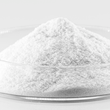
Adenosine triphosphate (ATP) is the primary energy currency molecule found in all living cells, and supplemental ATP may help increase physical energy levels, support digestive and joint health, maintain normal heart rhythm, and provide a boost for short, intense athletic activities.

Alfalfa (Medicago sativa), a nutrient-dense plant rich in vitamins, minerals and phytoestrogens, may help maintain healthy cholesterol levels, manage menopausal symptoms, support blood function and provide general nutritional benefits.

Aloe vera's gel and latex contain bioactive compounds like polysaccharides and anthraquinones that may support digestive health, relieve constipation, manage mouth rashes, promote joint function, and aid blood vessel conditions.

The naturally occurring coenzyme alpha lipoic acid acts as an antioxidant to potentially manage blood sugar levels, skin tone, peripheral neuropathy discomfort, slow-healing ulcers, and promote general cellular health.
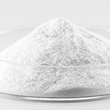
Amylase, an enzyme that breaks down starches and complex carbohydrates, may aid digestion, support a healthy inflammatory response, boost immune function, and help maintain proper enzyme levels as we age.

Derived from a bitter Indian plant, andrographis contains the active compound andrographolide that may support immune function, aid healthy inflammation response, promote digestive wellness, and help maintain joint mobility.

As an adaptogenic herb containing withanolides and other compounds, ashwagandha may help the body cope with stress by reducing cortisol levels, improving sleep quality, managing stress-related food cravings, enhancing cognitive function, and supporting hormonal balance in women.
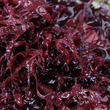
As a potent antioxidant carotenoid, astaxanthin may support eye health, assist with inflammation management, aid exercise recovery, and provide overall cellular protection against oxidative stress.
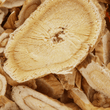
The astragalus plant yields a root extract containing quercetin, polysaccharides, and various minerals that has been used to bolster immunity, exert antioxidant effects, increase telomerase activity for healthy aging, and potentially benefit respiratory issues, blood sugar regulation, and energy levels.

The bacopa herb yields extracts containing bacosides, brahmine, and other bioactives that demonstrate potential for boosting memory and coordination, managing stress-related symptoms, supporting respiratory wellness, and assisting with inflammation management.

Rich in vitamins, minerals, amino acids, and bioactives such as catechins and phenols, barley grass supplements offer potential benefits for maintaining healthy cholesterol levels, normal blood pressure, antioxidant defenses, and digestive function.

The red-orange plant pigment beta carotene demonstrates antioxidant capabilities that could benefit macular degeneration, breathing ability, skin resilience against sun exposure, exercise endurance and recovery, while counteracting free radical damage.

Betaine HCL, a form of the nutrient betaine, may aid digestion by increasing stomach acid levels to improve protein and nutrient absorption, manage bacterial overgrowth, and prevent hypochlorhydria-related gastric discomfort.

Rich in anthocyanin antioxidants, bilberry extracts may support eye health by promoting retinal blood flow, aid digestion and relieve bloating, enhance circulation and reduce swelling, while helping to ease menstrual discomfort.

Biotin, also known as vitamin B7, is essential for fatty acid synthesis, amino acid metabolism, and glucose generation, while supplementation may reinforce hair health, promote nail strength, support healthy skin, and assist with blood sugar regulation.
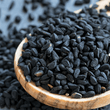
Derived from the seeds of the flowering plant Nigella sativa, black cumin supplements containing the bioactive compound thymoquinone may aid digestion, provide respiratory support, promote skin health and healthy inflammation response, and assist in maintaining a healthy cholesterol profile.

Black garlic extract, produced through fermentation, provides bioavailable organosulfur compounds that may support healthy blood pressure, cardiovascular function, immunity and gut microbiome.

Our blackcurrant extract, sourced from New Zealand and processed with a unique water extraction method, delivers concentrated polyphenols to support cardiovascular health by reducing inflammation and preventing oxidation of LDL cholesterol.
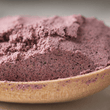
Rich in anthocyanins and antioxidants, New Zealand blackcurrant powder promotes immune strength, heart health, and assists in combating oxidative stress, contributing to the prevention of various diseases.

Boron citrate, a bioavailable source of the trace mineral boron, may promote bone health by improving calcium utilization, while also showing potential for maintaining healthy hormone balance and providing anti-inflammatory effects.
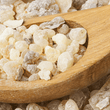
Derived from the resin of Boswellia trees, boswellic acids in boswellia extracts may help manage inflammation and provide benefits for joint discomfort, respiratory issues, digestive health, and skin conditions.

Bromelain is a proteolytic enzyme extracted from pineapples that may help manage excessive inflammation, especially in the sinuses, support respiratory function, aid digestion by reducing bloating and gas, and promote burn healing.

Aquamin® TG Marine Calcium, a 100% natural and lactose-free source derived from Icelandic seaweed, offers a highly bioavailable form of calcium that not only strengthens bones but also aids menstrual health, kidney function, and digestive processes through its role in cellular signaling and as an antacid.

The omega-7 in our products comes in a form called CardiOmegia™, sourced from 100% organic wild sea buckthorn in the foothills of the Himalayas. This new natural ingredient is unique and has strong clinical data supporting its efficacy in combating metabolic syndrome which is associated with cardiovascular problems.

Celery seed extract, known for its diuretic properties, supports menstrual health, circulation, urination, and weight management, offering relief from discomfort and aiding in regulating cycles.

Cetyl myristoleate (CMO), primarily sourced from animal fats, is associated with supporting joint health, immune function, and regulating normal inflammation processes, and is potentially beneficial for autoimmune disorders.

Traditionally consumed as a tea, Chaga is a nutrient-dense medicinal mushroom that encourages vitality, boosts immunity, helps manage inflammation, and may slow the aging process by neutralizing free radicals and reducing DNA damage.

Chasteberry, also known as Vitex agnus-castus, is a Mediterranean plant rich in the active compound agnuside, which supports female reproductive health by regulating the pituitary gland, alleviating menstrual symptoms like cramps, cravings, and mood swings, promoting breast health, and potentially aiding fertility and menopause management.

Derived from the shells of crustaceans, chitin is a tough, pliable compound that, when modified into chitosan, acts as a soluble dietary fiber to help maintain healthy cholesterol profiles, support kidney function, aid in skin healing, and promote weight management.
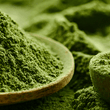
Known for its high photosynthetic efficiency, Chlorella is a green algae supplement that enhances immune function, supports healthy weight management, promotes balanced blood sugar levels, and may help reduce the body's absorption of heavy metals such as cadmium, lead, and mercury.
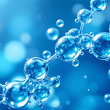
Choline bitartrate, a highly bioavailable form of the essential nutrient choline, offers multifaceted benefits, including supporting brain health by facilitating acetylcholine production for improved memory and neuromuscular function, promoting liver detoxification, maintaining cardiovascular well-being through homocysteine regulation, and aiding in healthy inflammation management when combined with betaine.
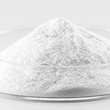
Derived from animal cartilage, chondroitin sulfate is a proteoglycan that plays a vital role in joint health by enabling cartilage to resist compression, and may also help manage discomfort related to chronic skin conditions, support bone health, and maintain healthy bladder function.
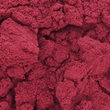
Chromium picolinate, a highly bioavailable form of the essential mineral chromium, supports healthy blood sugar level management by increasing insulin sensitivity, while also potentially benefiting cholesterol levels, heart health, and cognitive function in older adults.

Derived from flowering plants like passionflowers and oroxylum, chrysin is a flavonoid that may help maintain healthy testosterone levels by inhibiting its conversion to other compounds, while also offering antioxidant protection, supporting sexual health, and promoting healthy inflammation management.

Cistanche tubulosa, a parasitic herb known as the "ginseng of the deserts" in Traditional Chinese Medicine, contains phenylethanoid glycosides (PhGs) that may help increase testosterone levels, improve sperm quality, and support overall hormone regulation.

As a naturally occurring enzyme with strong antioxidant properties, Coenzyme Q10 (CoQ10) benefits cellular function and aging processes, supports cardiovascular health and healthy cholesterol management, and may assist in regulating blood sugar levels through its metabolic influence.

Collagen, the most abundant protein in the human body, is essential for skin, hair, nail, and joint health, with marine collagen derived from fish skin being the most bioavailable and effective at replenishing Type I collagen, improving skin hydration, and reducing the appearance of fine lines and wrinkles.

Copper gluconate, a bioavailable form of the essential mineral copper, may support healthy testosterone levels by inhibiting its conversion to estrogen, while also aiding red blood cell production, bone density, and immune function through copper's crucial metabolic roles.
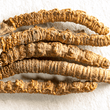
Cordyceps militaris, a highly valued mushroom in traditional Chinese medicine, supports lung health by promoting efficient oxygen utilization, managing inflammation, and easing respiratory ailments such as coughs, phlegm, shortness of breath, and asthma.

Sourced from the ancient sea buckthorn plant grown in the Tibetan Plateau, CyanthOx™ is a core ingredient in CX8 that offers extensive health benefits, including support for healthy inflammation response, heart health, cell regeneration, and brain function.

Derived primarily from fish oils and microalgae, DHA (docosahexaenoic acid) is an omega-3 fatty acid that offers comprehensive benefits for heart health by supporting cholesterol management and circulation, while also promoting eye function, brain neuroplasticity for improved memory and cognition, making it a potent supplement for overall well-being.

DIM, a natural compound formed from the digestion of cruciferous vegetables, promotes a healthier balance of estrogen metabolites, potentially offering benefits such as antioxidant protection, weight management support, relief from menstrual symptoms, and prostate health support for men.

Derived from apples and commercially produced through fermentation or synthesis, DL-Malic acid plays a vital role in energy production and may help alleviate muscular discomfort, support oral health, and facilitate the removal of toxins such as aluminum and lead from the body.

DMG HCL (dimethylglycine hydrochloride), a derivative of the amino acid glycine, supports immune function by enhancing the body's defenses against infections and environmental stressors, while also promoting healthy energy levels, weight management, and behavioral patterns in children through its involvement in the Krebs cycle and metabolism.

Derived from the Turnera diffusa shrub, damiana is a traditional herbal remedy rich in compounds like damianin, arbutin, and essential oils, offering potential benefits for sexual health by supporting libido, stamina, and addressing issues like erectile dysfunction and vaginal dryness, while also exhibiting properties for managing stress, promoting digestive wellness, and maintaining energy levels.

Dong quai, a perennial herb with a long history of use in Traditional Chinese Medicine, contains a variety of beneficial compounds that support female health by helping to manage menopausal symptoms.

DuoQuinol®, a unique combination of ubiquinol CoQ10 and geranylgeraniol (GG), supports cellular energy production, heart and brain health, fertility, and antioxidant protection while increasing CoQ10 bioavailability and helping to mitigate potential side effects associated with statin medications.

EPA (eicosapentaenoic acid), a key omega-3 fatty acid found in oily fish and algae sources, offers versatile benefits, including promoting heart health through improved arterial elasticity, circulation, and blood clotting, alleviating joint discomfort, aiding child development, and potentially assisting weight management through its diverse physiological roles.

As an adaptogen, Eleuthero (Siberian Ginseng) helps the body maintain homeostasis and cope with stress, while also providing benefits for cognitive function, physical performance, quality of life, and immune system support.

Epimedium, also known as horny goat weed, is an herbaceous perennial native to eastern Asia that supports sexual health in men, bone density in post-menopausal women, and joint function, thanks to its active compound icariin and phytoestrogen content.

Feverfew, a small bush with daisy-like flowers and citrus-scented leaves, contains parthenolide and other active compounds that support the management of occasional headaches, digestive health, and the reproductive system.

Folate, or vitamin B9, is an essential nutrient crucial for cell function, tissue growth, and fetal development, with its deficiency linked to increased risks of cardiovascular disease, dementia, anemia, and birth defects, making folate supplementation beneficial for supporting healthy pregnancy, brain aging, and overall well-being.

Rich in hydroxycitric acid (HCA), Garcinia Cambogia is a tropical fruit extract that supports weight management by affecting the conversion of carbohydrates and sugars to stored fat, and may be particularly beneficial for individuals who consume occasional carbohydrate-heavy meals when combined with a healthy diet and lifestyle.

Geranylgeraniol (GG), a substance naturally produced in the body via the mevalonate pathway, plays a crucial role in cellular processes like mitochondrial health, energy production, and protein synthesis, with its levels declining with age and certain medications, making GG supplementation beneficial for mitigating statin side effects, supporting muscle health, and promoting overall cellular function.

Rich in phenolic compounds, ginger root extract is a popular supplement for supporting digestive health by promoting the production of bile and saliva, managing gastric irritation and contractions, alleviating nausea and vomiting (especially in pregnant women), and helping to manage discomfort associated with menstrual cramps, exercise, and inflammatory conditions.

Ginkgo biloba, an ancient tree species, contains numerous active compounds like ginkgolides, bilobalides, and flavonoids that offer cognitive benefits, potentially supporting memory, attention, and thinking abilities, while also showing promise in alleviating menstrual discomfort, promoting vision health, and managing leg discomfort.s.
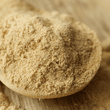
Beta-glucan, a polysaccharide derived from sources like baker's yeast and cereal grains, acts as a biological response modifier by binding to immune cell receptors, stimulating immune function and offering potential benefits for immune support, especially during compromised states, while also showing promise in promoting heart health, healthy digestion, and circulation.
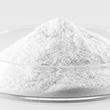
As a major component of cartilage and synovial fluid, glucosamine plays a crucial role in supporting cartilage growth, connective tissue health, joint function and mobility, while also exhibiting potential benefits for managing inflammation and aiding recovery from strenuous physical activities, making it an ideal supplement for maintaining joint health and alleviating discomfort.

Glutathione, a tripeptide and master antioxidant, protects cells from damage by neutralizing free radicals and reactive oxygen species, offering multifaceted benefits, including supporting the immune system, promoting heart health through improved circulation and cholesterol management, managing oxidative stress, and maintaining overall well-being as we age.

Livaux® Gold Kiwifruit Powder, made from 100% New Zealand-grown non-GMO Zespri SunGold Kiwifruit, is a premium supplement that supports a healthy digestive system and helps relieve symptoms of irritable bowel syndrome and other digestive problems by promoting the growth of F. prau, a crucial gut bacteria.

Oxifend® Grape Juice Powder, made from sustainably grown Sauvignon Blanc grapes in New Zealand's Marlborough Region, is a concentrated source of nutrients and antioxidants that support cardiovascular health, cognitive function, and the aging process.

Grape seed extract offers many benefits, including promoting healthy blood pressure and circulation, supporting cardiovascular and digestive health, combating visible signs of aging through free radical neutralization, and maintaining eye health, making it a versatile supplement.

Red grape skin extract is a rich source of anthocyanins, resveratrol, and phenolic compounds that offer many benefits, including supporting heart health through improved circulation and cholesterol management, providing antioxidant and anti-inflammatory protection for the brain and body, and aiding in healthy blood sugar regulation.

Sourced from pesticide-free green coffee beans grown in remote areas of India, Xtendlife's carefully extracted, decaffeinated, and spray-dried green coffee bean extract preserves chlorogenic acid content to support healthy weight management and provide antioxidant benefits without the side effects associated with caffeine.

Green lipped mussel powder, derived from the New Zealand green lipped mussel (Perna canaliculus), contains lipids, omega-3 fatty acids, and chondroitin sulfate that support healthy inflammation management, joint function, breathing, and digestion.

Green tea extract, derived from the leaves of Camellia sinensis, offers a range of benefits due to its polyphenol content, including promoting mental alertness through its caffeine and L-theanine components, supporting bone health, especially in post-menopausal women, aiding in healthy cholesterol management, and providing relief from genital wart discomfort when used topically.

Mukul gum, used in the Ayurvedic system of traditional medicine for nearly 3,000 years, supports healthy skin by managing discomfort, redness, and swelling, while also promoting a healthy metabolism, digestive health, and maintaining a healthy cholesterol profile.

Huperzine A, a compound extracted from Huperzia serrata, a plant used in Traditional Chinese Medicine, crosses the blood-brain barrier and supports mental function, memory in older children and teenagers, nervous system functions, and manages muscle weakness caused by some aging conditions.
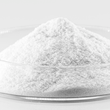
Inositol, a cyclitol found abundantly in fruits, nuts, and seeds, demonstrates promise in supporting mental well-being by providing relief from panic disorders and obsessive-compulsive behaviors, assisting in the management of polycystic ovary syndrome (PCOS) symptoms, contributing to balanced moods through neurotransmitter pathways, and potentially enhancing immune function and thermoregulation.

Iodine, an essential trace element predominantly sourced from seawater, plays a crucial role in thyroid hormone synthesis, with supplementation offering potential benefits for supporting thyroid health and managing hypothyroidism symptoms like fatigue and weight gain, while also exhibiting antioxidant properties, promoting hair growth and quality, and potentially alleviating breast discomfort related to menstrual cycles.
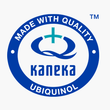
Developed and produced by Kaneka in Japan, Kaneka Ubiquinol™ is a patented, highly bioavailable form of CoQ10 that is naturally fermented from yeast and offers superior absorption for replenishing optimal levels of this essential nutrient, especially in those over 40 or with age-related conditions.

Kiwifruit extract, derived from the flesh and skin of the Hayward variety of kiwifruit (Actinidia deliciosa), contains Actinidin, flavonoids, vitamins C, K, and E, dietary fiber, and carotenoids that support digestive function, eye health, blood sugar management, and immune system function.
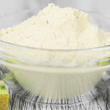
Kiwifruit powder, derived from dehydrated kiwifruit (Actinidia deliciosa), is rich in actinidin, flavonoids, carotenoids, vitamins C, K, and E, and dietary fiber, which support digestive health, respiratory function, healthy cholesterol levels, and circulation.

As a supplement, L-arginine is commonly used to relieve muscle discomfort, reduce exercise recovery time, support healthy heart function and circulation, increase exercise tolerance (especially in those experiencing chest discomfort), and promote the metabolism of protein by supporting nitrogen balance.

L-carnosine is a dipeptide with antioxidant properties that can support skin elasticity, digestive health, memory, joint health, and manage age-related conditions by scavenging free radicals and reducing glycation end-products.

L-cysteine is a semi-essential amino acid with antioxidant properties that support skin health, digestion, blood sugar regulation, exercise recovery, and is particularly beneficial for those with metabolic syndrome, elderly, infants or those with malabsorption issues.

L-glutamine is a conditionally essential amino acid that plays a vital role in supporting immune function, healthy muscle growth during exercise, and managing pain from inflammation, making it beneficial for athletes, those recovering from injury, and individuals with compromised immune systems.

L-histidine is an essential amino acid that provides joint support by managing conditions associated with immunoglobin IgG, while also offering potential benefits for seasonal discomforts, blood cell production, and nervous system maintenance, making it useful for those with related issues.
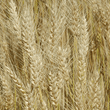
L-histidine, an essential amino acid and precursor for histamine, anserine, and carnosine, plays a crucial role in localized immune responses and supports healthy inflammation management, digestive function, antioxidant activity, and joint health when supplemented as L-histidine HCL.
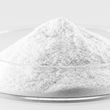
L-lysine is an essential amino acid that aids in cold sore and canker sore management, stress reduction, and blood sugar support, making it beneficial for those with herpes infections, high stress levels, or blood sugar concerns, especially vegetarians, athletes, and burn patients who may be deficient.

L-methionine is an essential sulfur-containing amino acid that supports liver function by preventing fat accumulation, aids exercise recovery and connective tissue production via creatine and collagen synthesis, and promotes cardiovascular health by maintaining clear arteries, benefiting those with deficiencies like vegetarians who may experience fatty liver, edema, or skin lesions.

L-ornithine HCL is a non-essential amino acid that supports exercise performance, particularly strength, power and speed in male weightlifters, while also offering potential benefits for anxiety reduction, liver function through ammonia management, and wound healing via collagen production, making it useful for those with deficiencies from metabolic demands like injury, pregnancy or disease.
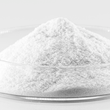
L-proline is a proteinogenic amino acid crucial for collagen synthesis that supports skin elasticity and healing, joint cushioning through cartilage repair, muscle preservation in endurance athletes, and connective tissue recovery from injuries, addressing deficiencies caused by poor diets, chronic illness, or excessive physical exertion.

L-pyroglutamic acid is a non-essential derivative of glutamine and glutamic acid that supports brain function by increasing acetylcholine activity, potentially enhancing memory recall, learning capabilities, anxiety management, and mental focus, making it beneficial for those experiencing cognitive impairments or high stress levels.

L-selenomethionine is an organic, bioavailable form of the essential mineral selenium that offers potential benefits for thyroid function, immune system support, cholesterol management, and heart health by providing antioxidant activity and regulating enzyme functions, making it valuable for those with deficiencies that manifest as fatigue, poor cardiac performance, or weakened immunity.
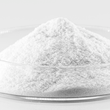
L-Taurine (Taurine) supports heart health, brain function, and muscle performance, while offering antioxidant and metabolic benefits. It also supports immune response, making it a valuable component for overall wellbeing.

L-theanine is an amino acid found in green tea that crosses the blood-brain barrier, increasing levels of serotonin, dopamine, GABA, and alpha brain waves, thereby promoting relaxation, focus, neuroprotection, and improved mood and cognitive performance under stress.

L-tyrosine is a non-essential amino acid that supports cognitive functions like mental performance, alertness, and memory under stressful conditions, while also addressing deficiencies caused by conditions like phenylketonuria that impair tyrosine synthesis, thereby benefiting overall health and well-being.

Lipase is an enzyme that breaks down dietary fats and oils, supporting digestive health by relieving indigestion, bloating, and flatulence after high-fat meals, while potentially aiding nutrient absorption, immune function, metabolic processes, and pancreatic health, making it beneficial for those with deficiencies or conditions affecting fat digestion.

Lutein is a plant pigment with antioxidant properties that supports eye health, especially against age-related eye conditions, while potentially aiding blood sugar management and memory recall when combined with DHA, making it beneficial for those lacking adequate dietary intake from sources like leafy greens and egg yolks.

Lycopene is a potent antioxidant carotenoid from tomatoes that supports skin health by managing sun exposure effects, promotes cardiovascular function and artery health, may aid respiration during exercise, and contributes to prostate wellness, making it beneficial for those lacking this nutrient commonly found in plant sources.

Lysozyme is an enzyme found abundantly in egg whites that exhibits antibacterial properties by breaking down cell walls of gram-positive bacteria, aiding in infection management, healthy inflammation response, wound healing, and bladder health, making it beneficial for those prone to bacterial infections or inflammatory conditions.

Methylsulfonylmethane (MSM), an organic sulfur-containing compound found in the atmosphere, plants, and various dietary sources, provides a biologically available source of sulfur, an essential nutrient, and is commonly used to support joint health, tendon function, exercise recovery, and manage seasonal conditions.

Aquamin Mg® marine magnesium, derived from sustainably harvested seawater, contains easily absorbed magnesium and 72 other trace minerals that support various aspects of health, including inflammation management, cellular energy production, and bone density maintenance.

Manganese citrate is a bioavailable form of manganese, an essential trace nutrient that plays a crucial role in supporting bone health, providing antioxidant activity, helping maintain healthy blood sugar levels, and aiding in metabolic processes.

Mangosteen extract, derived from the fruit's inedible exocarp, is prized for its antioxidant properties, largely attributed to the presence of xanthonoids like mangostin, which help protect cells from the damaging effects of free radicals and oxidative stress, thereby supporting overall health and potentially reducing the risk of chronic conditions, notably those involving the skin.

Milk thistle, a flowering plant containing the active complex silymarin, is commonly used in traditional herbal medicine to support liver health by protecting the liver from toxins, promoting bile flow, and maintaining overall liver function.
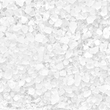
TMR ConcenTrace® AC is a potent, standardized complex of trace minerals extracted from the Great Salt Lake, rich in magnesium, selenium, lithium, and boron, which play crucial roles in maintaining overall health and well-being by supporting enzymatic reactions, bone health, and mental balance.

Molybdenum Glycinate offers a highly absorbable source of molybdenum, a trace mineral that aids in the function of enzymes responsible for managing sulfite sensitivity, supporting detoxification processes, promoting red blood cell health, and regulating copper levels in the body.

The Xtendlife Mushroom Blend harnesses the power of medicinal mushrooms, such as Cordyceps militaris, Lion's Mane, Royal Sun Agaricus, and King Trumpet, to promote energy, mental clarity, immune function, and cellular health, making it an ideal supplement for those seeking to improve their overall vitality and performance.
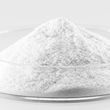
N-Acetyl L-Cysteine (NAC) is an amino acid derivative that supports liver function, respiratory health, heart and kidney well-being, and acts as a precursor to the powerful antioxidant glutathione.
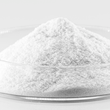
Nicotinamide Riboside (NR), a form of Vitamin B, is a precursor to the essential coenzyme nicotinamide adenine dinucleotide (NAD+), which plays a critical role in cellular energy production, DNA repair, and activation of sirtuins, making NR supplementation a promising approach to support healthy aging and overall cellular function.

Nattokinase, an enzyme derived from the traditional Japanese food natto, supports cardiovascular health by promoting healthy blood circulation, dissolving blood clots, and maintaining blood vessel function, while also offering potential cognitive and reproductive health benefits.

Olive Leaf, rich in the potent antioxidant oleuropein, supports cardiovascular health by promoting healthy circulation, maintaining a healthy blood cholesterol profile, and aiding the immune system in defending against viruses and other pathogens.

As a coenzyme in various metabolic processes, PABA helps maintain healthy skin, supports the natural color of hair as you age, promotes healthy digestion by aiding intestinal bacteria, and plays a role in the production of normal red blood cells and fibrous tissue.

Palmitoylethanolamide (PEA) is a promising supplement for those seeking natural pain relief, as it helps manage chronic pain conditions like arthritis, carpal tunnel syndrome, and endometriosis by reducing inflammation and activating the body's cannabinoid receptors, all while demonstrating a high level of safety and tolerance.

Papain, a versatile enzyme found in papaya, is a valuable supplement for those seeking to manage inflammation, recover from injuries, relieve sore throat discomfort, minimize post-exercise muscle soreness, and support overall skin health.

Pau D'Arco Extract, sourced from a South American flowering tree, is a valuable herbal remedy for those battling recurrent Candida outbreaks, such as vaginal thrush or oral candidiasis, as its active compounds, lapachol and beta-lapachone, demonstrate antimicrobial, anti-inflammatory, and antioxidant properties that help restore balance to the digestive system.

Corktree (Phellodendron chinense) bark extract, rich in the alkaloid berberine, is a potent herbal remedy that supports infection management, particularly in the digestive tract, urinary tract, and vagina, while also promoting liver and gallbladder function, and addressing various health concerns such as metabolic syndrome, circulation issues, and skin conditions.

Phosphatidyl choline, an essential component of cell membranes and pulmonary surfactant, is a versatile supplement that supports digestive health, liver function, memory recall, and cardiovascular health, making it beneficial for those experiencing anxiety, memory loss, low moods, skin conditions like eczema, and circulatory issues.

As a key player in cell membrane structure and function, Phosphatidyl L-serine (derived from sunflower lecithin in Xtendlife products) offers non-GMO and vegan support for attention span, language skills, memory recall, and mood, particularly in the elderly population.

Phytosterols, plant-derived compounds structurally similar to cholesterol, are essential for maintaining healthy cholesterol levels, supporting prostate health, promoting hair growth, and providing antioxidant protection, making them a valuable supplement for individuals concerned about cardiovascular health, age-related hair loss, and overall well-being.

Piperine, derived from black pepper and long pepper, is a versatile supplement that not only increases the absorption and efficacy of crucial nutrients like curcumin, selenium, and vitamin B6 but also supports weight management through its thermogenic effects, aids in stress relief, and provides additional benefits for respiratory health, digestion, and joint well-being.
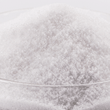
Potassium, a vital nutrient found in fruits and vegetables, plays a key role in supporting healthy circulation, heart rhythm, bone density, and kidney function, making potassium phosphate and potassium citrate supplements valuable for individuals with low plasma potassium levels or those at risk of hypokalemia, which can lead to muscle disturbances and cardiovascular issues.

Potassium Ascorbate is a valuable supplement for those seeking to address potassium and vitamin C deficiencies, as it offers antioxidant protection, supports collagen synthesis, promotes healthy circulation and heart function, and may help manage degenerative processes through its alkalizing effect and ability to regulate hormone levels.

Protease supplements, such as Enzidase® AFP Concentrate (derived from Aspergillus niger) and Enzidase® FP Concentrate (derived from Aspergillus oryzae), offer a range of health benefits, including improved protein digestion, support for heart health, relief from discomfort, and enhanced wound healing, making them particularly useful for older individuals or those with specific health concerns.

Quercetin, a flavonol found in various fruits, vegetables, and beverages, offers a wide range of health benefits due to its antioxidant and anti-inflammatory properties, supporting immune function, prostate health, heart health, healthy blood pressure, and exercise recovery.

GeroNova's bio-enhanced, stabilized form of R-Lipoic Acid (RLA) provides superior absorption compared to other forms of alpha-lipoic acid, offering potent antioxidant support for energy production, brain health, and nerve function, and helping manage complications associated with unhealthy blood sugar levels or excess body weight, such as diabetic neuropathy or metabolic syndrome.

Red Clover, a traditional folk medicine with potent phytoestrogenic properties, is a popular supplement for managing menopause-related hot flushes, supporting post-menopausal cardiovascular health, alleviating PMS symptoms like breast tenderness, and promoting prostate health in older men experiencing frequent nighttime urination.

Red Spinach (Amaranthus hybridus), a rich source of nitrates and betacyanin pigments with potent antioxidant properties, supports healthy blood flow, cardiovascular function, and exercise performance, particularly in aerobic activities, while also providing essential vitamins and minerals and the muscle-building compound phytoecdysteroid.

Reducose® is an innovative solution for anyone seeking a natural, scientifically backed way to regulate carbohydrate metabolism, support blood sugar levels, and promote overall metabolic health.

Reishi, a powerful medicinal mushroom, offers a wide range of health benefits, including supporting the immune system, promoting liver function, aiding in the management of food allergies and fatigue, and providing anti-aging and antioxidant properties, making it an essential supplement for those seeking to optimize their overall health and well-being.

Ribonucleic acid (RNA), a nucleic acid involved in gene expression and protein synthesis, is a valuable supplement derived from baker's yeast that supports rapid cell proliferation, making it beneficial for injury recovery, post-surgery healing, memory support, digestive health, and managing the visible signs of aging.

Rutin, a valuable supplement for those with varicose veins, hemorrhoids, chronic venous insufficiency, or spider veins, supports circulatory health by strengthening blood vessels, providing antioxidant protection, and enhancing the effects of vitamin C, while also offering potential benefits for managing seasonal conditions and stress.

S-Adenosyl methionine (SAMe), a naturally occurring co-substrate involved in numerous transmethylation reactions, is a valuable supplement for supporting mood, liver health, bone function, and managing discomfort associated with chronic conditions.

Saffron extract, a concentrated form of the world's most expensive spice, offers a range of health benefits, including alleviating symptoms of depression and premenstrual syndrome, reducing painful periods, and potentially slowing the progression of Alzheimer's disease, by modulating neurotransmitter levels and providing potent antioxidant support.

Standardized sage extracts, optimized for high levels of beneficial rosmarinic acids and low levels of potentially harmful thujones, are commonly used to enhance memory, alertness, and overall brain health, making them a popular supplement for both younger individuals seeking a cognitive boost and older adults looking to support their memory and cognition naturally.

Rich in plant steroids and saponins, Sarsaparilla is often used as a general tonic to support hormone levels, aid in detoxification by binding to and removing endotoxins from the body, and help manage chronic skin conditions, as well as inflammatory conditions affecting the joints and immune system.

Rich in bioactive compounds, saw palmetto extract is primarily used to support prostate health, while also showing potential benefits for improving bladder capacity and management in women when combined with Echinacea.
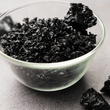
Shilajit extract, derived from sedimentary rocks in the Himalayas, is a traditional Ayurvedic remedy used to support male reproductive health, increase testosterone levels, and potentially slow age-related cognitive decline.

Found in avocados, pecans, and other plant sources, beta-sitosterol is a waxy, white powder that may help manage cholesterol levels, support exercise recovery in marathon runners, and aid in the management of second-degree burns when used in an ointment with berberine.
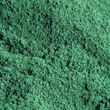
Rich in protein and gamma linolenic acid, spirulina is commonly used to support detoxification, immunity, healthy cholesterol levels, and liver function, and may benefit nursing mothers by providing essential nutrients for their babies' development.

Stevia, a natural sweetener derived from the South American plant Stevia rebaudiana, is up to 150 times sweeter than table sugar and provides a calorie-free alternative for managing weight, supporting healthy blood sugar levels, and promoting dental health by reducing refined sugar intake.

Rich in compounds like histamine, acetylcholine, and serotonin, stinging nettle root extract may help alleviate symptoms of seasonal conditions, support joint health, and manage bleeding in the digestive tract from ulcers or hemorrhoids.

Strontium, a soft, reactive metal with chemical properties similar to calcium, is primarily used to support bone health, especially in postmenopausal women, by integrating into the bones and potentially reducing the risk of fractures.

DeltaGold®, the only pure tocotrienol-only product available worldwide, is extracted from annatto seeds and offers a range of benefits, including improving cholesterol profile, reducing triglycerides, and avoiding the interference of tocopherols found in most vitamin E supplements.

Trans-resveratrol, a phenol produced by plants in response to injury or bacterial attack, is a potent antioxidant found in fruits like blueberries, grapes, and raspberries, and may support heart health, blood sugar management, joint function, and liver health.
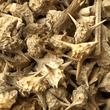
Tribulus terrestris, an herbaceous plant found worldwide, contains steroidal saponins, particularly protodioscin, which are responsible for its biological activity in supporting sexual health, increasing testosterone levels, and improving erectile function, sperm quality, and libido.

Known as "Yun zhi" or "cloud mushroom" in China and "Kawaratake" or "mushroom by the river" in Japan, Turkey Tail is a superfood often consumed as a tea, blend, soup, or food sprinkle to invigorate the spleen, eliminate dampness, and treat respiratory issues.

Used for thousands of years in Siddha medicine and Indian cuisine, turmeric is often employed for its inflammation-managing and immunity-boosting properties, which contribute to its ability to support joint health, digestive function, skin health, and manage gastric ulcers.

As a bioavailable nutrient concentrated in organs with high metabolic activity, such as the heart, liver, and kidneys, Ubiquinol plays a crucial role in ATP synthesis and has been recommended by doctors for its cardiovascular benefits, including supporting normal blood pressure levels and improving long-term glycemic control in people with type 2 diabetes.
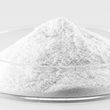
Undenatured Type II Collagen, also known as native collagen, is a strictly manufactured form of the main structural protein found in cartilage that preserves the active parts of the molecule, supporting long-term joint health by regulating the body's autoimmune response and reducing collagen degradation in joints.

Found in orange fruits and vegetables like carrots, pumpkins, sweet potatoes, and mangoes, as well as green vegetables such as spinach and kale, carotenoids support the immune system, heart health, eye health, and skin health through their vitamin A activity and antioxidant properties.
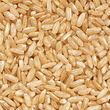
Vitamin B1, also known as thiamin or thiamine, is an essential nutrient found in yeast, pork, and cereal grains that plays a crucial role in energy production, nervous system support, heart health, and antioxidant activity.

Along with folic acid, vitamin B12 acts as a cofactor in converting homocysteine to methionine, and supplementation with B12, B6, and folate has been shown to significantly reduce brain atrophy in older age, likely due to lowered homocysteine levels.

Vitamin B2, also known as riboflavin, is an essential nutrient discovered in the early 20th century that plays a crucial role in various biochemical processes, especially enzyme reactions that activate other vitamins, and is found in yeast extract, dairy products, leafy vegetables, meat, fish, and organ meats.

Niacinamide supplements are commonly used to support healthy levels of vitamin B3, as well as to promote mental health, memory recall, and coping with low moods, while also providing support for skin health, joint discomfort, occasional headaches, and digestive health.

Vitamin B3 supplements are commonly used for cholesterol management, often combined with omega-3 fatty acids, and may also support cognitive functions, especially in older individuals, as well as promote skin health by managing conditions like acne, granuloma annulare, and bullous pemphigoid, and support joint health by maintaining normal flexibility and managing joint discomfort.

Vitamin B5 supplements, typically provided as calcium pantothenate, are used to support physical energy levels, manage healthy cholesterol levels, promote joint health, and aid in wound repair, and individuals with low energy levels, apathetic or irritable moods, muscle cramps, or numbness may benefit from vitamin B5 supplementation.

Vitamin B6, a group of essential compounds including pyridoxine and pyridoxal 5'-phosphate (PLP), is abundantly found in animal protein, bananas, cereal grains, chickpeas, pistachios, and potatoes, and plays a crucial role as a cofactor in the metabolism of amino acids, glucose, and lipids.

Common forms of vitamin C used in health supplements include L-ascorbic acid, ascorbyl palmitate (a fat-soluble ester with enhanced antioxidant effects), and calcium ascorbate (a natural form that provides both vitamin C and calcium), each offering unique benefits and properties.

Vitamin D3 supplements, sourced from either sheep wool lanolin or plant-derived sources (as used in most Xtendlife formulations), are utilized to support bone formation, maintain healthy levels of calcium and phosphate, promote dental health, and recent studies suggest that vitamin D3 may help restore damaged endothelial cells in the cardiovascular system and reduce the risk of heart attacks.

Vitamin E, a group of essential compounds including four tocopherols and four tocotrienols, with D-alpha-tocopherol being the most biologically active form in humans, plays a crucial role in cell signaling, enzyme reactions, gene expression, neurological functions, and acts as a potent antioxidant, particularly in the glutathione peroxidase pathway.

Vitamin K2, particularly MK-4, offers various health benefits, including supporting cognitive function in older users by protecting the nervous system from calcium deposit damage, managing unhealthy levels of inflammation in the joints, promoting heart health by regulating arterial calcification, and maintaining healthy bone mineralization while inhibiting the formation of bone spurs.

Vitamin K2, particularly in the form of MK-7, has been shown to offer numerous health benefits beyond its well-known role in blood clotting, including the prevention of calcium deposits in arteries, lowering the risk of heart disease, and improving cardiovascular and bone health.

Wheat grass, the stalk of the common wheat plant, is a nutrient-dense supplement rich in vitamins, minerals, and chlorophyll, offering general nutritional support, aiding digestion, promoting joint health, and enhancing blood oxygenation.

Zeaxanthin, a yellow carotenoid pigment found in leafy greens and corn, plays a crucial role in maintaining eye health by acting as a potent antioxidant, filtering harmful blue light, and supporting the macula against age-related degeneration.

Zinc, an essential mineral, plays a vital role in immune function, with its supplemental forms like zinc acetate often used to reduce cold duration, while also supporting healthy digestion, behavior regulation, balanced blood pressure, and clear skin.
Find out the important roles each ingredient plays in Xtendlife formulations. Use this section to learn more about individual ingredients: their many benefits, ingredient origins and the Xtendlife products they feature in. All ingredients are listed alphabetically, simply click on an ingredient to learn more.

AA2G™ is a stabilized form of vitamin C that supports the skin's ability to fight free radicals, lighten and brighten the complexion, reduce dark spots, and promote collagen production for younger-looking, more radiant skin.

Sustainably sourced and eco-friendly, BioVera™ Oil harnesses the centuries-old skincare benefits of aloe vera to soothe irritation, hydrate, strengthen the skin's barrier, fight free radicals, and promote cell turnover for healthier, more youthful-looking skin.

Derived from apple pomace, a sustainable juice-making byproduct, this exfoliator boosts skin's barrier strength, promotes cell turnover, and diminishes fine lines and wrinkles.
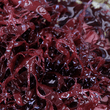
Astaxanthin, a potent antioxidant from marine algae, fights free radicals, promotes collagen production, and works synergistically with copherol and phytaminol to reduce signs of aging.

Sourced sustainably from New Zealand, Avocado Oil is a versatile ingredient that benefits skin, hair, and heart health.
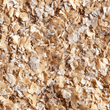
This all-natural ingredient, rich in polyphenols, reduces age spots and evens skin tone by combating oxidative stress.

Babassu Butter, cold-pressed from the fruits of the Brazilian Babassu palm, deeply moisturizes and nourishes skin with vitamin E and fatty acids.

Beautifeye™, an award-winning ingredient by Sederma, targets the upper eye area, supporting collagen, elastin, and dermal structure for less sagging and wrinkles.

This ocean-sourced ingredient, rich in plant sterols, antioxidants, and lipids, reduces signs of aging, manages inflammation, and strengthens the skin's barrier layer.

Cetiol HE, a coconut oil-based polymer, supports skin hydration in foaming cleansers, improving the efficacy of active ingredients like kiwifruit extract and Manuka honey.

Cetiol RLF, a natural emollient derived from coconut and palm oils, is specially formulated for sensitive skin, providing rich moisture and essential vitamins A, D, and E.
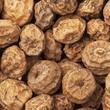
This nutrient-packed ingredient, native to the Mediterranean region, offers lightweight moisture, skin brightening properties, and stress-related skin problem relief through its vitamin B1 content.

Clerilys W, a blend of cucumber, white mulberry, and hibiscus extracts, naturally lightens and brightens skin by inhibiting tyrosinase activity, limiting pigment storage, and promoting cell turnover.

Nano-Lipobelle H EQ10, a nano-emulsion containing coenzyme Q10 and vitamin E, penetrates deeply into the skin to fight free radicals and support collagen and elastin production, reducing the appearance of wrinkles.

Copherol, a natural form of vitamin E, is a potent antioxidant that supports collagen and elastin health, reducing fine lines and wrinkles for a youthful, radiant complexion.

This versatile ingredient pairs well with other hydrating agents, making it ideal for use in eye creams, cosmetics, hair care products, and gentle cleansers.

Cupuaçu Butter, a luxurious moisturizer derived from the seeds of the Amazonian Cupuaçu tree, is rich in phytosterols and fatty acids that support collagen production, improve skin elasticity, and enhance the overall tone and texture of the skin.

D-Panthenol, a nutrient from the B vitamin family, helps manage the effects of oxidative stress on the skin by strengthening the skin's outer barrier, fighting environmental toxins, and promoting hydration.

DermCom, derived from the Crocus chrysanthus bulb, improves communication between skin cells, supporting the skin's repair and rejuvenation process for a more youthful appearance.

Easyliance, an all-natural powder formula, boosts skin elasticity and tightens skin, reducing the appearance of fine lines and wrinkles, particularly around the eyes and mouth.

Ephemer™, a breakthrough cosmetic ingredient derived from the rare Undaria Pinnatifida algae, offers long-lasting protection against free radical damage for visibly younger, smoother, and more radiant skin.

This potent oil promotes healthy skin, helps resist conditions like acne and eczema, supports skin elasticity and suppleness, fights oxidative damage to reduce fine lines and wrinkles, and naturally firms and softens the skin.

Eyeliss™, a patented blend of plant-based extract and two natural peptides, targets puffiness, dark circles, and fine lines around the eyes by reducing fluid buildup, strengthening capillaries, and boosting skin elasticity.

Grape Seed Oil, cold-pressed from Vitus vinifera grape seeds, is a lightweight, nutrient-rich oil that improves skin hydration, texture, and tone without clogging pores.

Harakeke Flax Oil, a luxurious botanical moisturizer rich in linoleic acid, phytosterols, and essential fatty acids, hydrates skin, strengthens its barrier layer, reduces redness and irritation, and promotes cell turnover for healthier, more youthful-looking skin.

Primalhyal 50, a lightweight hyaluronic acid derived from wheat, penetrates cells beneath the skin's surface to boost moisture levels, resulting in plumper, more youthful skin with fewer lines and wrinkles.

Packed with antioxidants and vitamins, this versatile oil fights free radicals, reduces dark spots, and supports cell turnover for a youthful glow, while also offering cleansing properties.

The efficacy of Kanapa™ blend lies in the powerful combination of antioxidant-rich ingredients like Astaxanthin, Harakeke Oil, Mamaku Extract, and Copherol Vitamin E, as well as nourishing components such as Moringa Oil, BioVera™ Oil, Lipolami Milk Thistle, and Antioxidant Complex, which collectively fight free radicals, promote collagen production, deeply hydrate, and support overall skin health.

Sustainably sourced from organic growers in New Zealand's Bay of Plenty, Kiwifruit Extract not only benefits skin health but also supports the digestive and immune systems by promoting healthy levels of prebiotics and probiotics.

Composed primarily of fatty acids, Lipolami Milk Thistle offers effective hydration that penetrates the skin's surface layer, leading to long-term, visible improvements in skin's luminosity and plumpness.

Used by Maori for centuries, Mamaku Gel is a lightweight, moisturizing ingredient that soothes and softens skin, promotes radiance, and reduces the appearance of fine lines, wrinkles, and dark spots caused by sun exposure.

Manuka Honey, a nutrient-dense New Zealand honey rich in Methylglyoxal, offers skin benefits like managing inflammation, supporting skin's ability to manage bacteria, boosting regeneration, hydrating, and fighting free radicals.
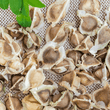
Moringa Oil, a lightweight, nutrient-dense oil from the seeds of the Moringa oleifera tree, fights free radicals, supports skin's ability to manage oxidative stress, and encourages collagen and elastin regeneration for a more youthful appearance.

Gentle and suitable for sensitive skin, Olivem 800 provides deep, effective hydration with its unique emulsified formula, permeating the skin's surface to reach new cells beneath and improve skin texture and tone over time.

Pomegranate Seed Oil, rich in nutrients, contains Punicic Acid, an Omega-5 fatty acid that reduces skin inflammation, aids in skin repair, prevents moisture loss, and supports all-day hydration.

Proteol APL is a foaming anionic surfactant derived from apple amino acids, that boosts cleansing power, gently exfoliates, supports collagen and elastin production, and helps maintain skin's moisture barrier.

Raspberry Seed Oil, rich in antioxidants, anti-inflammatory properties, and essential fatty acids, combats signs of aging, soothes irritated skin, and locks in moisture for a radiant, healthy glow.

Rhyolite Exfoliator, a fine powder made from lava stones, is an environmentally-friendly alternative to plastic microbeads that gently lifts away dead skin cells and dirt without stripping skin of natural oils or causing microscopic tears.

Rosehip Oil, rich in beta-carotene, essential fatty acids, and fatty acids, absorbs easily into the skin, softening and hydrating it while minimizing the appearance of wrinkles, fine lines, and crow's feet.

Shea Butter, a luxurious nut butter that melts at skin temperature, offers ultimate hydration and skin-friendly emollients, while its vitamins A and E fight free radicals to support collagen and elastin production for elastic, supple, and youthful skin.

Swertia Chirata Extract (SWT-7), derived from the leaves of an annual herb native to India, uses stem cell technology to support the regeneration of skin cells and thicken and strengthen the epidermis, resulting in younger-looking skin that is less fragile, less prone to wrinkles, and better able to manage free radicals.

Rich in tannins (polyphenols) and powerful antioxidants, Witch Hazel helps reduce the risk of skin damage from UV rays, supports the skin's ability to manage environmental damage and free radicals, protects collagen and elastin, and slows down signs of aging like fine lines, wrinkles, dark spots, and sagging skin.
Shipping calculated at checkout

